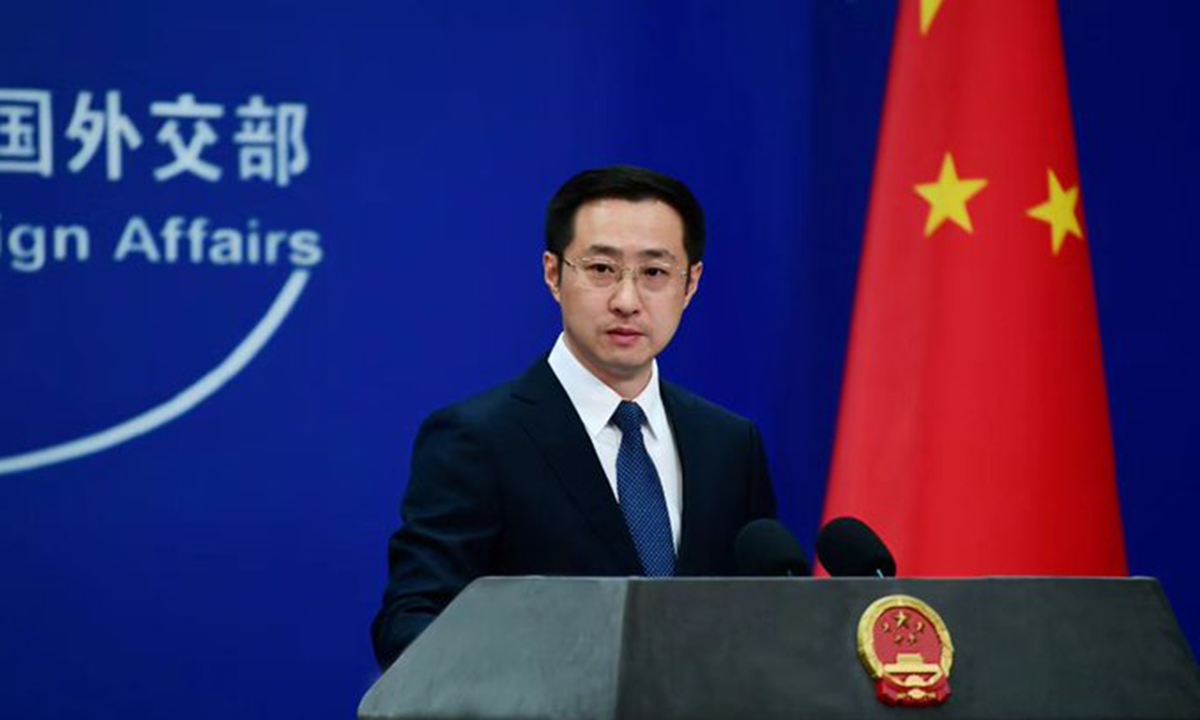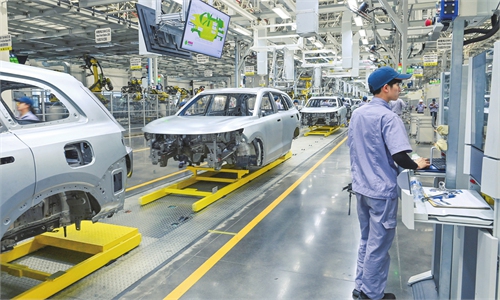China says US' overcapacity claims a disguise for crackdown, constitute bullying against Chinese industry

Lin Jian, the newly appointed 34th spokesperson of China's Ministry of Foreign Affairs, meets the press. Photo: Courtesy of China's Ministry of Foreign Affairs
China's Foreign Ministry on Friday again rebuked US accusation of Chinese overcapacity, saying that the US' claims, while sounding like an economic concept, are a disguise for its malign attempt to curb China's industrial development and a form of economic coercion and bullying.
The remarks came as the US continued to hype its so-called accusation of overcapacity across various Chinese industries and even threatened to take measures, including increased tariffs against Chinese products, in its latest crackdown campaign against China.
Commenting on US' accusations of overcapacity at a regular press briefing in Beijing, Lin Jian, a spokesperson for China's Foreign Ministry, said that such claims against China are not new, as the US has long accused China of overcapacity, as China exported a large volume of high-quality, affordable products to the world.
"The so-called overcapacity claim raised by the US seems to be an economic concept, but behind it is the vicious attempt to curb and suppress China's industrial development. It aims to seek a more favorable competitive position and market advantage for itself. It is blatant economic coercion and bullying," Lin said.
Lin further pointed out that 80 percent of US chips are exported and a huge amount of US ports and agricultural products are also exported. Can this be called overcapacity, based on the US' own logic? Lin also noted that the proportion China's exports of new-energy vehicles (NEVs) in total output remains far below that of Germany, Japan, South Korean and other countries, which shows there is no overcapacity in China's NEV sector.
"Prescribing medicine for others cannot cure one's own disease. US 'overcapacity' charge as a pretext for protectionist trade measures cannot address one's own problems. Instead, it will hinder the stability of the global production and supply chain, harm the growth and development of emerging industries, and undermine the international community's joint efforts to address climate change and green transformation and development," Lin said.
Also on Friday, Lin responded to remarks made by US President Joe Biden, who called for substantial higher tariffs against Chinese steel products during a speech given in the US steel production base of Pittsburgh on Wednesday. Biden also accused China of offering subsidies to expand steel production capacity, which harms US businesses.
In response, Lin said that relevant claims made by the US side are completely untrue and could harm China-US economic and trade relations. "China is seriously concerned and strongly dissatisfied with this," he said.
The spokesperson also noted that China's steel industry relies on domestic demand and does not receive any export subsidies, further adding that China's proportion of steel exports in its total output has long remained at around 5 percent and is far below that of Japan, South Korea and other major steel producers.
China will closely follow the US' so-called investigation, urging the US to be prudent in its words and deeds, stop political manipulation on China-related issues during the election year, and stop overstretching the concept of national security regarding economic and trade issues, remove existing additional tariffs and refrain from imposing new tariffs, Lin said.
"China will take all necessary measures to resolutely defend its rights and interests," the spokesperson noted.
Global Times

